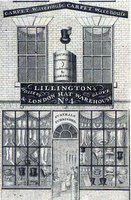Aaargh! It’s almost upon us, roughly slouching…
But while I am trying to ignore the Christmas Beast, at this time of year there’s one very important thing to do in preparation for the holidays and that’s to book tickets to a Christmas performance. I know we’ll all be playing our favorite Christmas CDs (or listening to the BBC’s live satellite broadcast of the Festival of Nine Lessons and Carols) but I urge you to get out to a real, live performance. (And by the way, the performing arts enhance the economic and social wellbeing of the community, do all sorts of good things for kids and adults, and live performance does something for you that DVDs or CDs can’t. Check out this list of reports from the Cultural Alliance of Washington, D.C. You’ll need to scroll down to Reports and Studies. Some are local, some national. And it costs about the same as a ballgame, sometimes less, to go to the opera or ballet.)
Check out what’s going on in your area. If you’re interested in traditional music and folklore, you might want to catch a performance by the Christmas Revels.
 Or how about the Nutcracker? Gorgeous music and costumes, wonderful dancing, and an erectile Christmas tree!
Or how about the Nutcracker? Gorgeous music and costumes, wonderful dancing, and an erectile Christmas tree!

 My favorite Christmas music is Handel’s Messiah and I have fond memories of performances in England with a thumping big local choir and imported soloists (preferably with a Welsh bass). One of my most memorable Messiahs was performed in York Minster. It was freezing cold–literally. I don’t know how the orchestra kept their instruments tuned. The entire audience wore coats, hats, gloves, and scarves. The conductor announced extra cuts that would be made so we didn’t freeze to death, and at intermission we all shot out to the pub for something to keep us warm (ginger wine for me, thanks). But it was a fabulous performance in a breathtakingly beautiful setting, a memory I’ll treasure all my life.
My favorite Christmas music is Handel’s Messiah and I have fond memories of performances in England with a thumping big local choir and imported soloists (preferably with a Welsh bass). One of my most memorable Messiahs was performed in York Minster. It was freezing cold–literally. I don’t know how the orchestra kept their instruments tuned. The entire audience wore coats, hats, gloves, and scarves. The conductor announced extra cuts that would be made so we didn’t freeze to death, and at intermission we all shot out to the pub for something to keep us warm (ginger wine for me, thanks). But it was a fabulous performance in a breathtakingly beautiful setting, a memory I’ll treasure all my life.
The Messiah has been performed continuously ever since its Dublin premiere in 1742, although it was associated earlier on with Easter more than Christmas. George II started the tradition of standing for the Hallelujah Chorus. Here’s some more to read about the Messiah.
Do you have a holiday tradition that involves attending, or taking part in a live performance? Have you sung in a chorus, or danced in the Nutcracker, or been a ballet mom? What music do you like to listen to over the holidays?
Janet


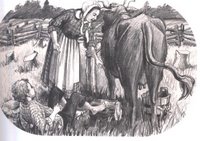
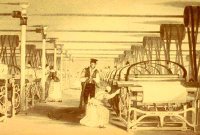
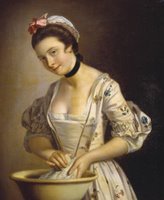
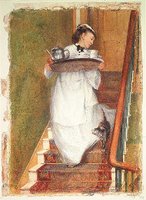 Or, you might go into service. Here’s another amazing statistic: in the eighteenth century, one-third of all the population (with the exception of the aristocracy) was in service at some time in their lives—usually until their mid-twenties. About one-third of London’s population were servants. Some people, working in the houses of the rich, rose in the ranks to enter the servant elite as butler, housekeeper, or lady’s maid; even though this illustration is from the mid-eighteenth century, you can see how well-dressed this lady’s maid is. Servants earned room and board, plus “perks”—for a ladies maid or valet, cast-off clothing they could wear or sell—or “vails,” tips from visitors usually given to footmen.
Or, you might go into service. Here’s another amazing statistic: in the eighteenth century, one-third of all the population (with the exception of the aristocracy) was in service at some time in their lives—usually until their mid-twenties. About one-third of London’s population were servants. Some people, working in the houses of the rich, rose in the ranks to enter the servant elite as butler, housekeeper, or lady’s maid; even though this illustration is from the mid-eighteenth century, you can see how well-dressed this lady’s maid is. Servants earned room and board, plus “perks”—for a ladies maid or valet, cast-off clothing they could wear or sell—or “vails,” tips from visitors usually given to footmen. 